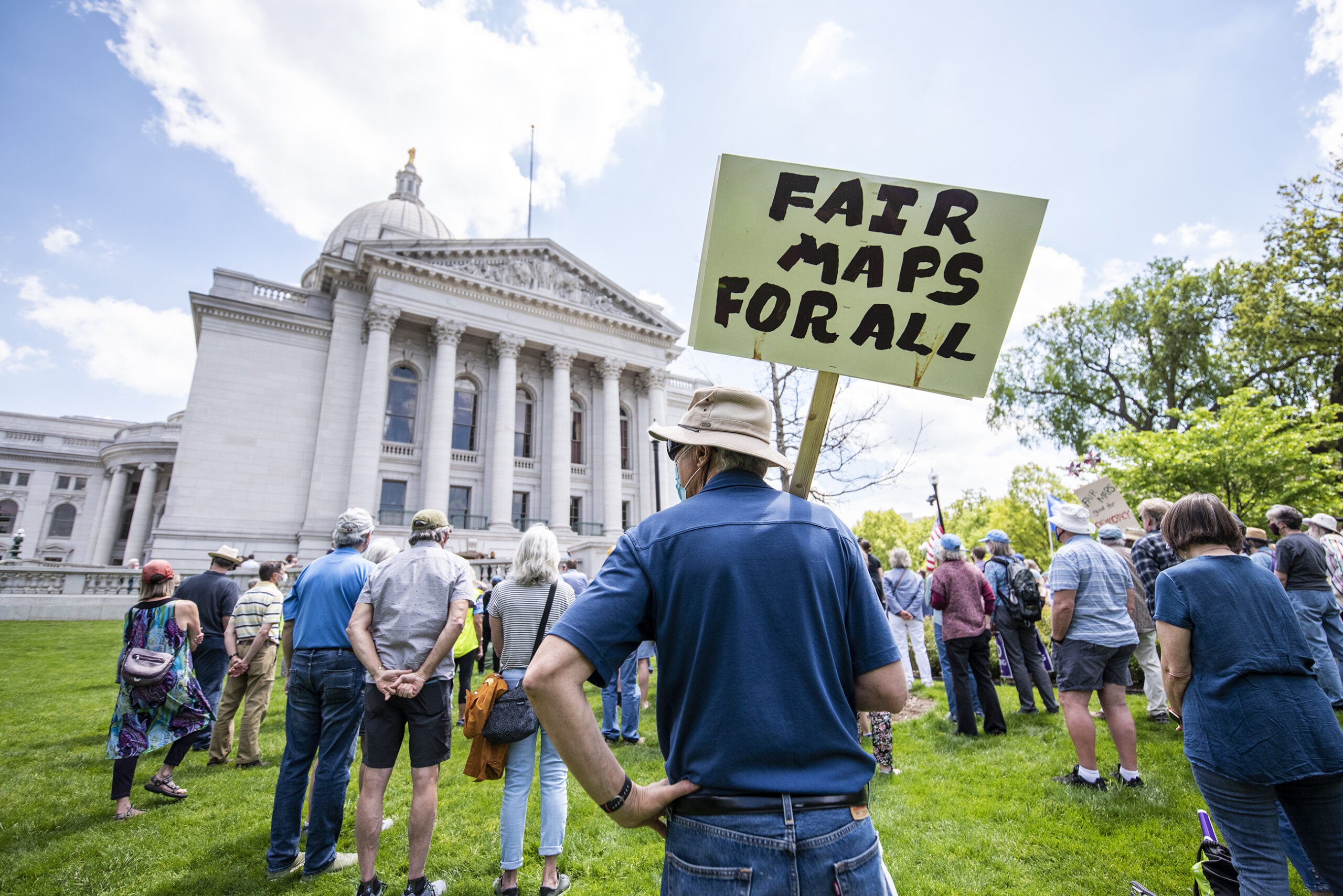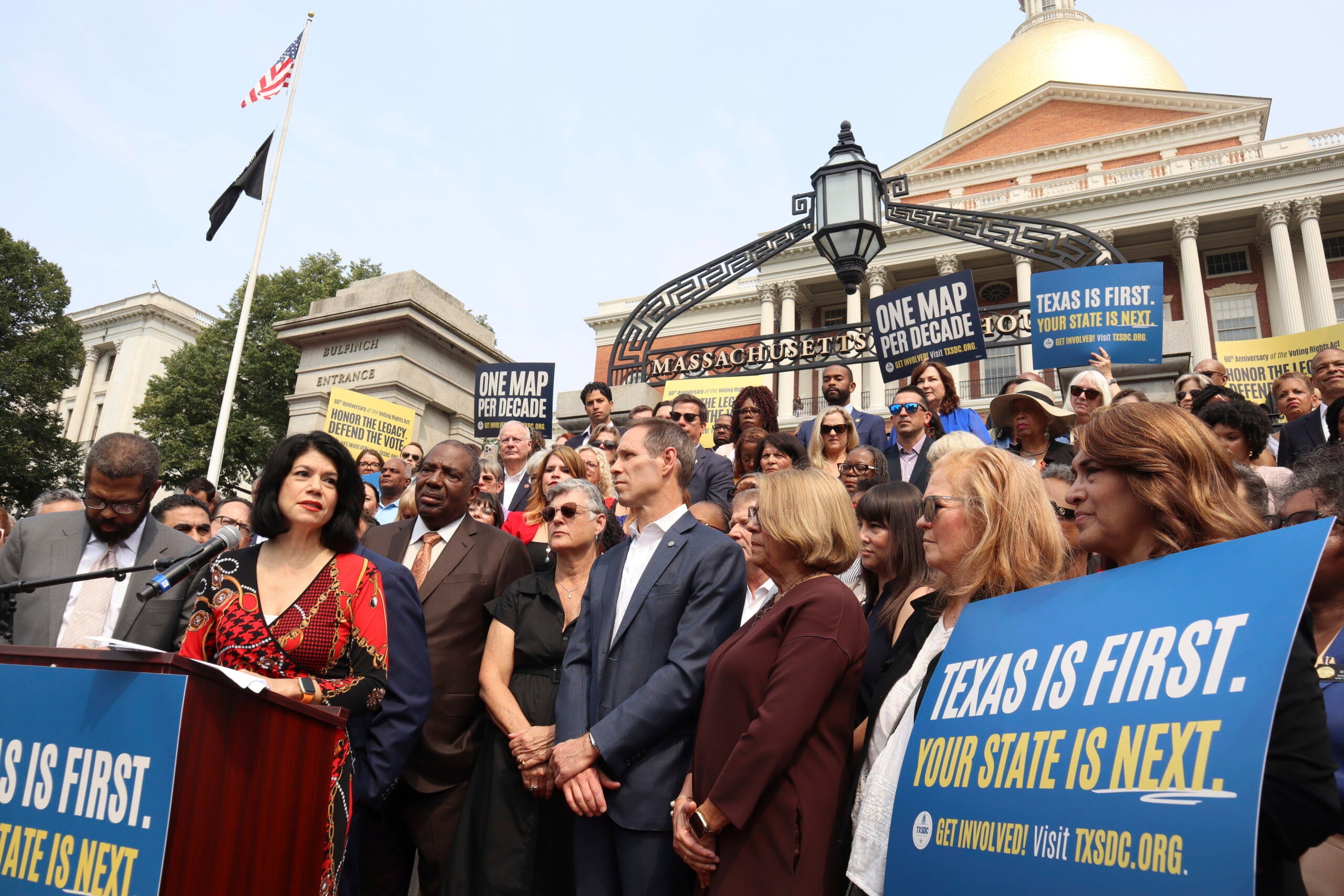Gov. Tony Evers will use his state budget to propose a nonpartisan redistricting process that would reduce the power of lawmakers to draw their own district lines.
The move comes two years before Wisconsin’s next round of redistricting, and at a time when the current legislative map, drawn in 2011, is still being challenged in federal court.
“The people should get to choose their elected officials, not the other way around,” Evers said in a statement. “By creating a nonpartisan redistricting commission in Wisconsin, we’re making sure that when we’re redrawing district maps in 2021, we’re putting people before politics.”
News with a little more humanity
WPR’s “Wisconsin Today” newsletter keeps you connected to the state you love without feeling overwhelmed. No paywall. No agenda. No corporate filter.
States redraw their political boundaries every 10 years after the U.S. Census to ensure that every district is roughly equal in population.
Because of the high political stakes, it’s rare for lawmakers and governors from different parties to agree on the same map, which often leads to lengthy — and costly — legal battles.
It’s a different story when there’s single-party control, as there was when Republicans ran state government in 2011. Under those circumstances, GOP lawmakers passed, and then-Gov. Scott Walker signed maps that helped Republicans retain control of the Legislature and Wisconsin’s congressional delegation for the better part of a decade.
Under the proposal Evers announced Tuesday, the nonpartisan Legislative Reference Bureau (LRB) would be responsible for drawing legislative and congressional maps.
The LRB would take its direction from a newly formed “Redistricting Advisory Commission.” The speaker and minority leader in the Assembly would each pick members of the commission and so would the majority and minority leaders of the state Senate. Those four commissioners would then pick a fifth member to serve as their chairperson.
Mapmakers at the LRB would be prohibited from using “voting patterns, party information, incumbent residence information and demographic information,” according to a summary of the proposal from the governor’s office.
The commission would have to hold a hearing on the plan in all eight of the state’s congressional districts before it’s voted on by the Legislature.
Evers promised during his campaign to create a nonpartisan redistricting process, and there are signs the public supports the idea, at least in principal.
A Marquette University Law School poll conducted last month found 72 percent of those surveyed support the idea of a nonpartisan commission drawing legislative and congressional district lines.
But the proposal faces an especially steep climb in the state Legislature, where majority Republicans have said for years they oppose it.
They argue it’s the constitutional duty of the Legislature to redraw political lines, and it’s impossible to ensure a truly nonpartisan alternative.
Spokespersons for Assembly Speaker Robin Vos, R-Rochester, and Sen. Majority Leader Scott Fitzgerald, R-Juneau, did not immediately respond to a request for comment on Evers’ plan.
The map Republicans drew in 2011 has been the subject of multiple federal court challenges, including one that could yet find its way back to the U.S. Supreme Court.
The GOP map was largely upheld in a 2012 lawsuit that resulted in the redrawing of two Assembly districts in Milwaukee after a court found the original districts violated the federal Voting Rights Act.
A second lawsuit, filed in 2015, argued the maps drawn by Republicans were so partisan they violated the constitutional rights of Democratic voters by making it nearly impossible for them to translate votes into legislative seats.
A federal court agreed with that argument, finding Wisconsin’s redistricting plan unconstitutional in November 2016 and ordering the Legislature to redraw the state’s map in January 2017.
The U.S. Supreme Court heard arguments in that case in October 2017, but it sent the case back to the lower court, writing that plaintiffs who brought the original case lacked standing.
That case is once again alive, this time with a larger group of plaintiffs. A three-judge panel was set to hear arguments in the case this year, but those arguments were delayed while the U.S. Supreme Court hears new challenges in other states.
The group that initiated that lawsuit praised Evers for trying to change the redistricting process.
“We applaud Gov. Evers for his leadership as we try to end the map-rigging that has corrupted Wisconsin politics,” said Sachin Chheda, chair of the Wisconsin Fair Maps Coalition.
Whatever the court decides could affect the next round of redistricting, although Wisconsin’s circumstances will be different than they were in 2011.
Evers’ term runs through 2022, meaning if the next round of redistricting follows the usual timeline, the Democratic governor would have the power to veto a Republican-drawn map.
Editor’s note: This story has been updated with original reporting from WPR.
Wisconsin Public Radio, © Copyright 2025, Board of Regents of the University of Wisconsin System and Wisconsin Educational Communications Board.






